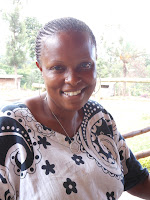"Upendo Ni Nuru Ya Maishi" - "Love is the Light of Life"
How beautiful is that statement, both in Swahili and English?
Over the past few weeks I have witnessed connections forming between people; mostly women from the west with Tanzanian men, but others as well. These connections are faced with cultural differences, language barriers, limited time and societal pressures. This makes me wonder; is it possible to love someone and build a relationship with them despite these challenges? Would this cause major conflict in the future or is it possible to accept those differences and concerns to create a workable relationship? Can and does LOVE conquer all?
In several situations the language barriers and cultural differences are concerns, however the bigger concerns is the ulterior motives of the men. I have had numerous conversations with both men and women of Tanzania and from the West who express the following opinions regarding the motives of Tanzanian men with western woman: they are interested in us because we represent money and opportunities, they are looking for sex OR there are some cases where they are sincerely interested in us, looking for a legitimate relationship. Unfortunately these opinions create barriers when meeting men, as it has women wonder if the men are sincerely interested. What makes things more difficult is the men here are very assertive, charming and express their interest very openly.
One connection I witnessed was between a man from the Maasai tribe of Tanzania and a western woman. I saw this connection grow within about a week and I found it very fascinating. Despite the extreme language barrier they were able to communicate. They understood very little of each other, however both had the willingness to learn from each other and were most eager to spend time together whether it was chatting while playing with the children, watering the vegetables or putting mulch on the garden. A major obstacle which confronted them was the extreme culture differences as the Maasai tribe are very traditional and value their beliefs and cultures. As their time together came to an end, they were able to say good bye with a kiss and a hug. I was moved by their willingness to acknowledge their interest in each other and solidify that with an embrace. It was a bitter sweet moment as I could feel the sadness and fondness in their hearts as they said goodbye.
Being a romantic at heart, I am inspired by the connections being developed as well as the courage of those willing to be open and vulnerable to those possibilities.
It is in my opinion that regardless of our race, religion, culture, economic position, or location on the globe that we all come into relationships with certain motives, intentions, expectations thus the responsibility is on us to communicate those clearly, be open and authentic and honor what we want to create in a relationship.
Further I feel that as a society (atleast in the Western world), we put too many restrictions on ourselves. We worry about how things will work, what will others think, worry about getting hurt or hurting someone, worry about that lack of time we have together, wonder about all the 'what if's'.
I suppose this is a human phenomenon, however...
In summary I ask myself what kind of relationships would we have if we let go of all of our concerns and loved fully, was present every moment, lived in the now and treated each relationship if they were the love of your life? Letting go of all concerns, restrictions, limitations, etc. I think our lives would be amazing, fulfilling, exciting, full of joy, love and light!!!
Upendo Ni Nuru Ya Maishi





















































